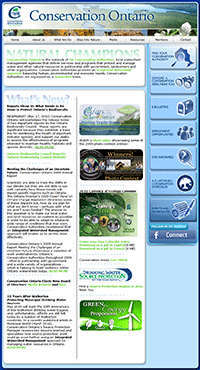Science Communication Course in Toronto, Ontario
Caroline Donovan · | Science Communication |Several times each year, IAN teaches a course on effectively communicating science. On May 12-13th, Bill Dennison (IAN) and Caroline Wicks (EcoCheck) traveled to Toronto, Ontario to teach the course to scientists and communication specialists who work for local conservation authorities. Conservation Ontario, the umbrella organization that oversees regional and local conservation authorities, helped provide funding for the course. The website states: Conservation Ontario is the network of 36 Conservation Authorities, local watershed management agencies that deliver services and programs that protect and manage water and other natural resources in partnership with government, landowners and other organizations. Conservation Authorities promote an integrated watershed approach balancing human, environmental and economic needs. Conservation Authorities are organized on a watershed basis.
It was exciting to connect with former EcoCheck employee, Ben Longstaff, who now works for the Lake Simcoe Regional Conservation Authority. During his time at EcoCheck, Ben played a key role in compiling and publishing the Chesapeake Bay report card. He currently works on water permitting at LSRCA. In September 2009, Lake Simcoe Regional Conservation Authority won the Riverprize, an international award for outstanding achievement and excellence in river management.
Emily Nauman, another former EcoCheck employee, also helped teach the course.
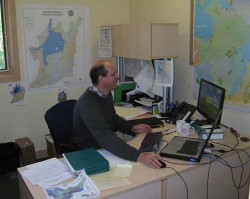
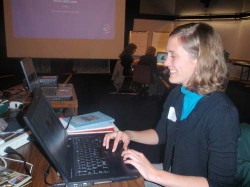
The course consisted of approximately 25 participants from local conservation authorities. These participants work on a variety of water issues in Ontario, including land use change; impacts from airports, ATV parks, and agriculture; and safe drinking water. Additionally, there was a mix of disciplines, with scientists, communications, and education and outreach represented. Participants traveled to Toronto from as far away as Niagara and Saugeen Conservation Authorities.
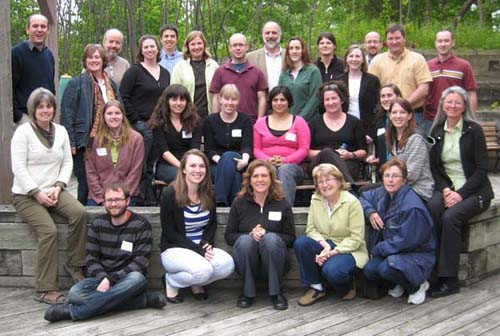
The course provided both the philosophy and practicality of how to effectively communicate science. Each module starts with a short lecture, followed by a hands-on activity that all participate in. Then, participants work on their specific projects and learn the associated software. For example, Conceptualization includes a hands-on activity, "Conceptionary", followed by sketching their own conceptual diagram, and then using Adobe Illustrator software to transfer their hand-drawn diagram to their computer. By the end of the two days, participants learn conceptualization, presentation, publication, and in this particular course, integration (i.e., report cards).
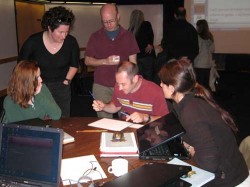
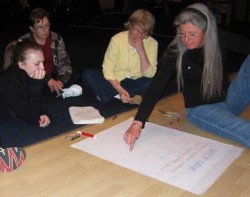
The Conservation Authorities are producing report cards for their own watersheds, and so we used report cards as examples for each module, and had a breakout group that specifically addressed scientifically based assessments.
This was a lot to learn and assimilate in two days! We made some great friends along the way, but I think the participants were happy to see us go after so much work!
About the author
Caroline Donovan
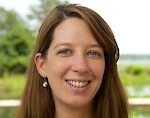
Ms. Caroline Donovan oversees program and project management, science communication, and data analysis at UMCES-IAN. She has over 15 years of experience with ecosystem health report cards, science communication products, stakeholder engagement, and citizen science and volunteer monitoring. Ms. Donovan has worked extensively in the fields of science integration and communication, facilitation, and program management and administration. Ms. Donovan received a Bachelor of Science in Biology from University of North Carolina - Wilmington in 2002 and a Master of Science in Biological Oceanography from University of Maryland - College Park in 2005.
